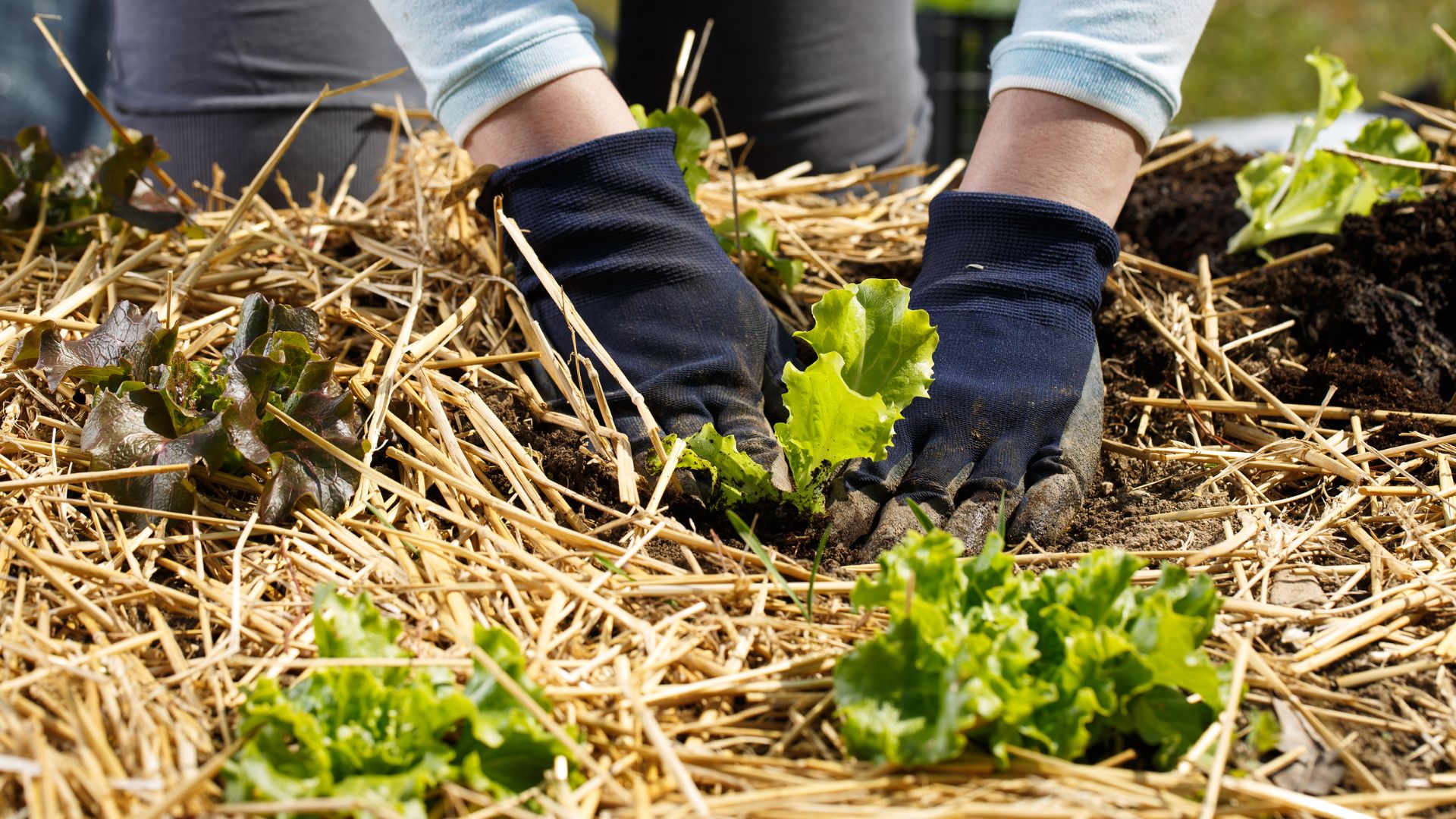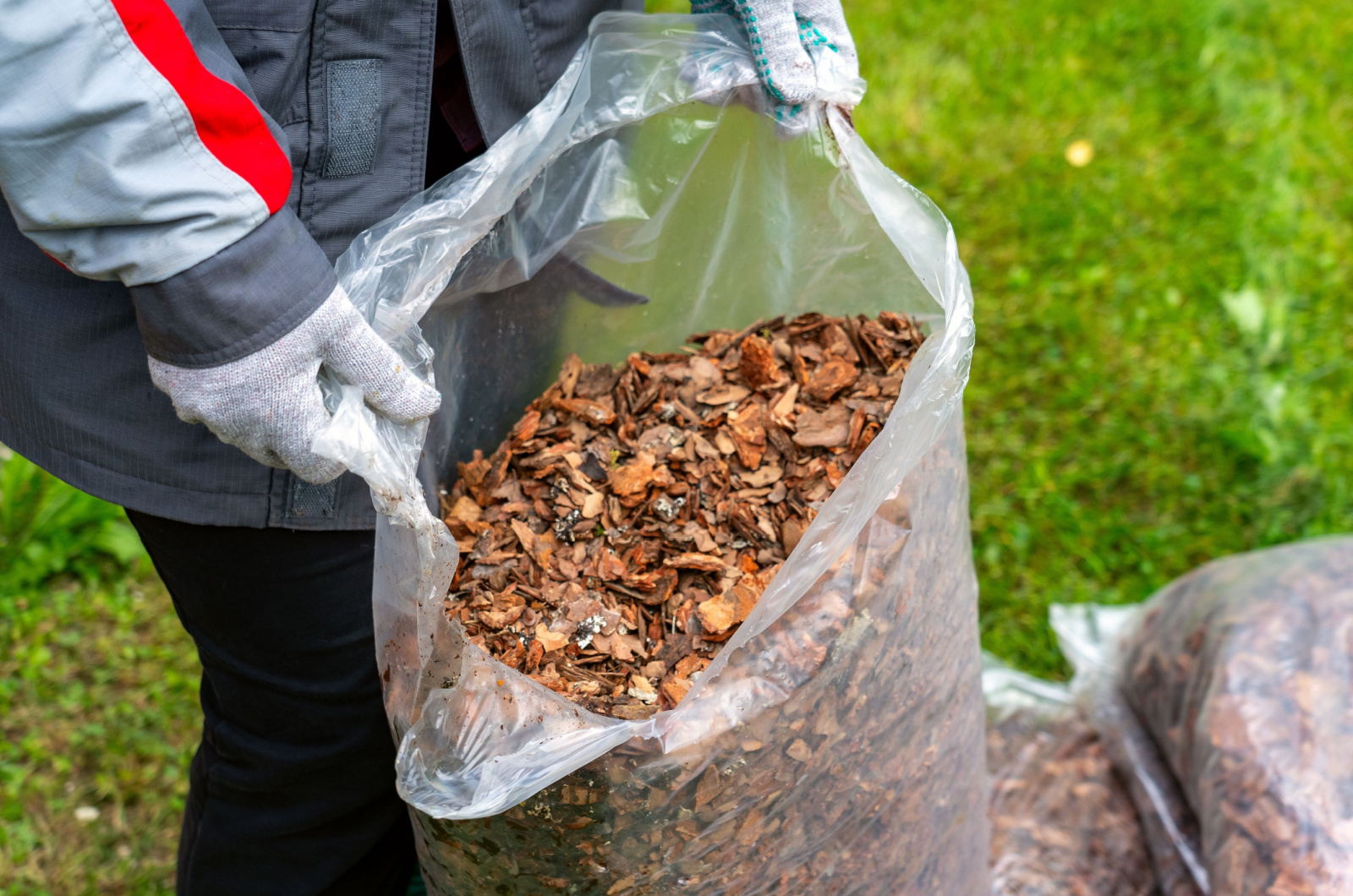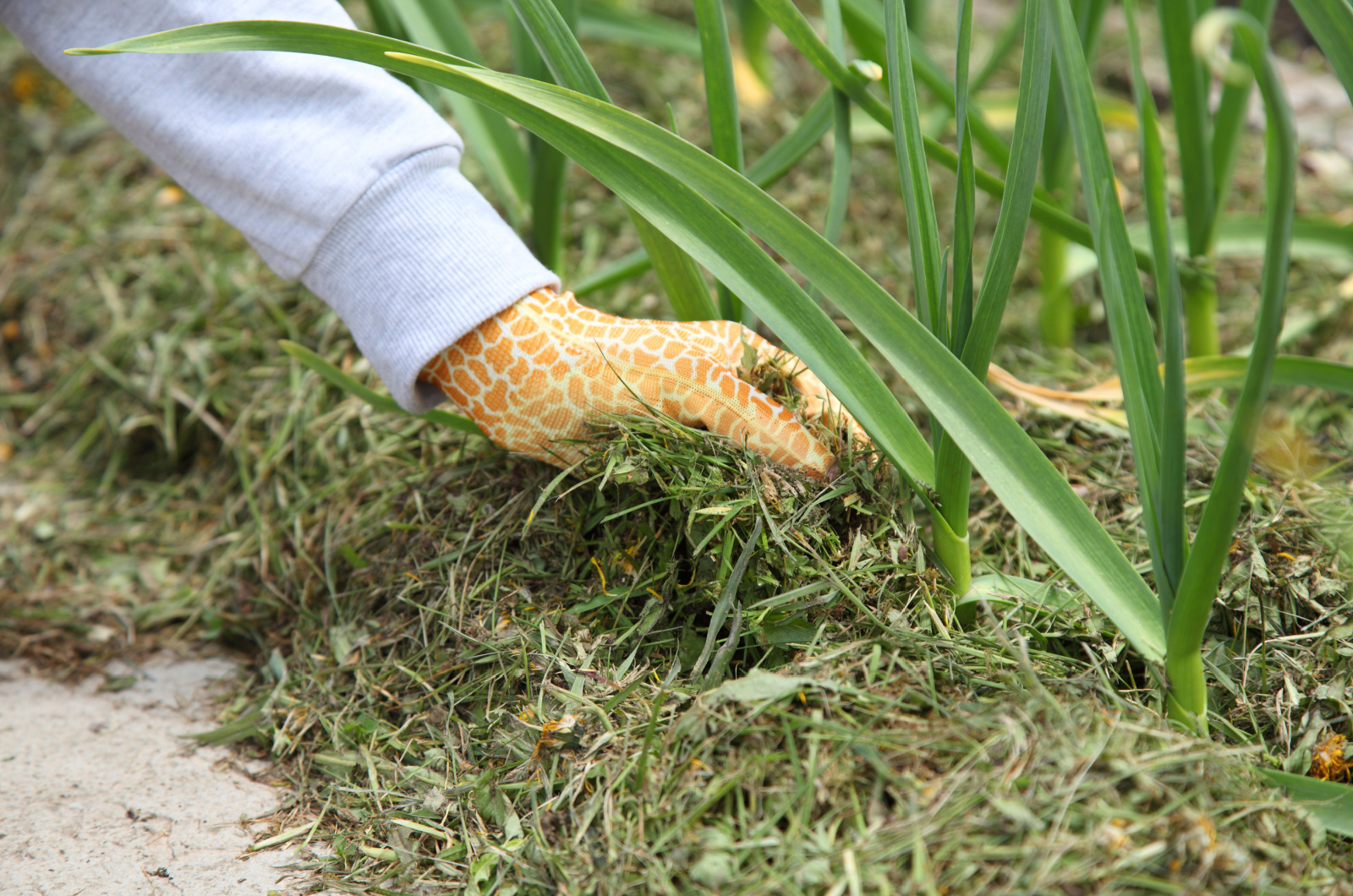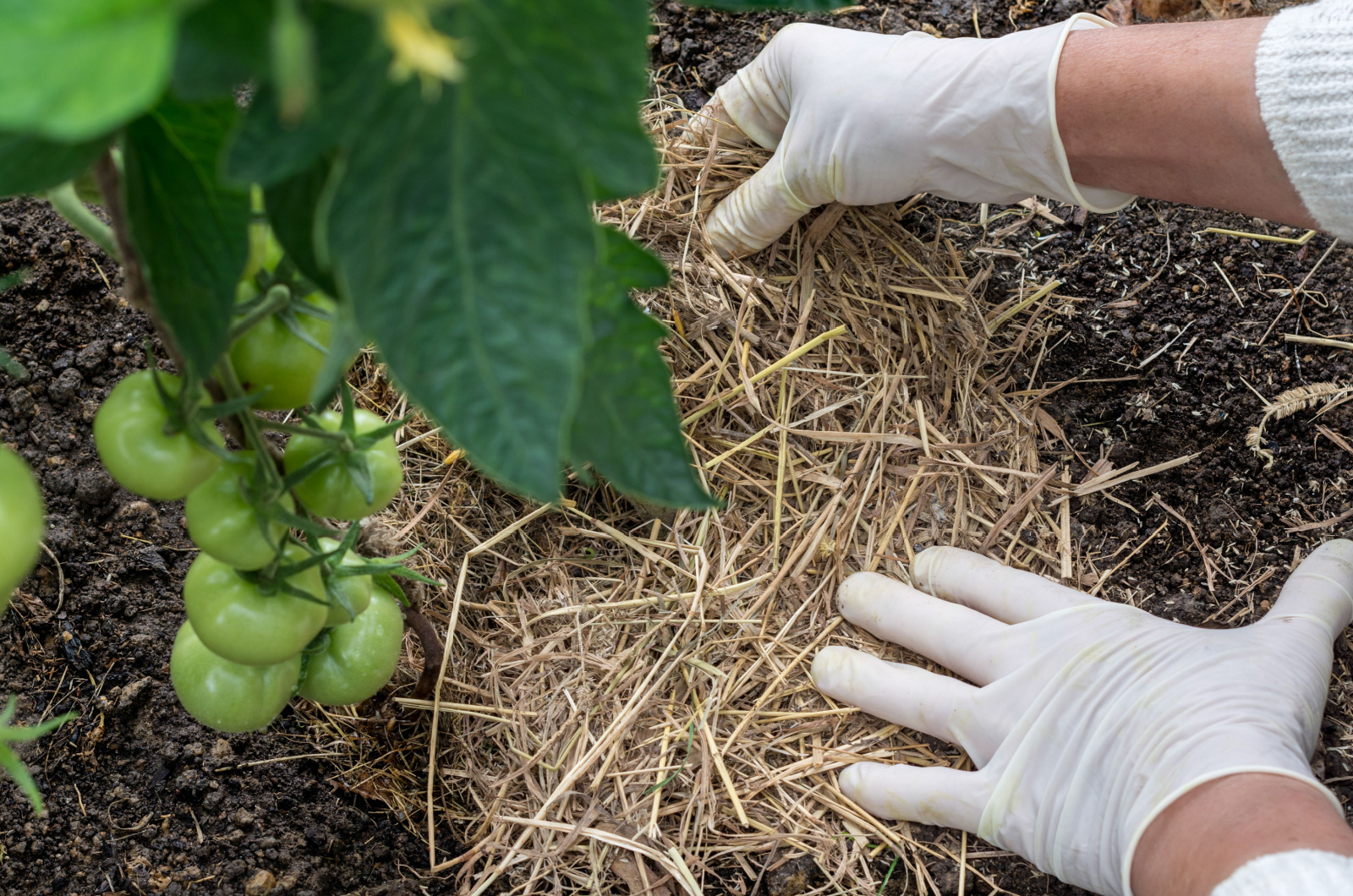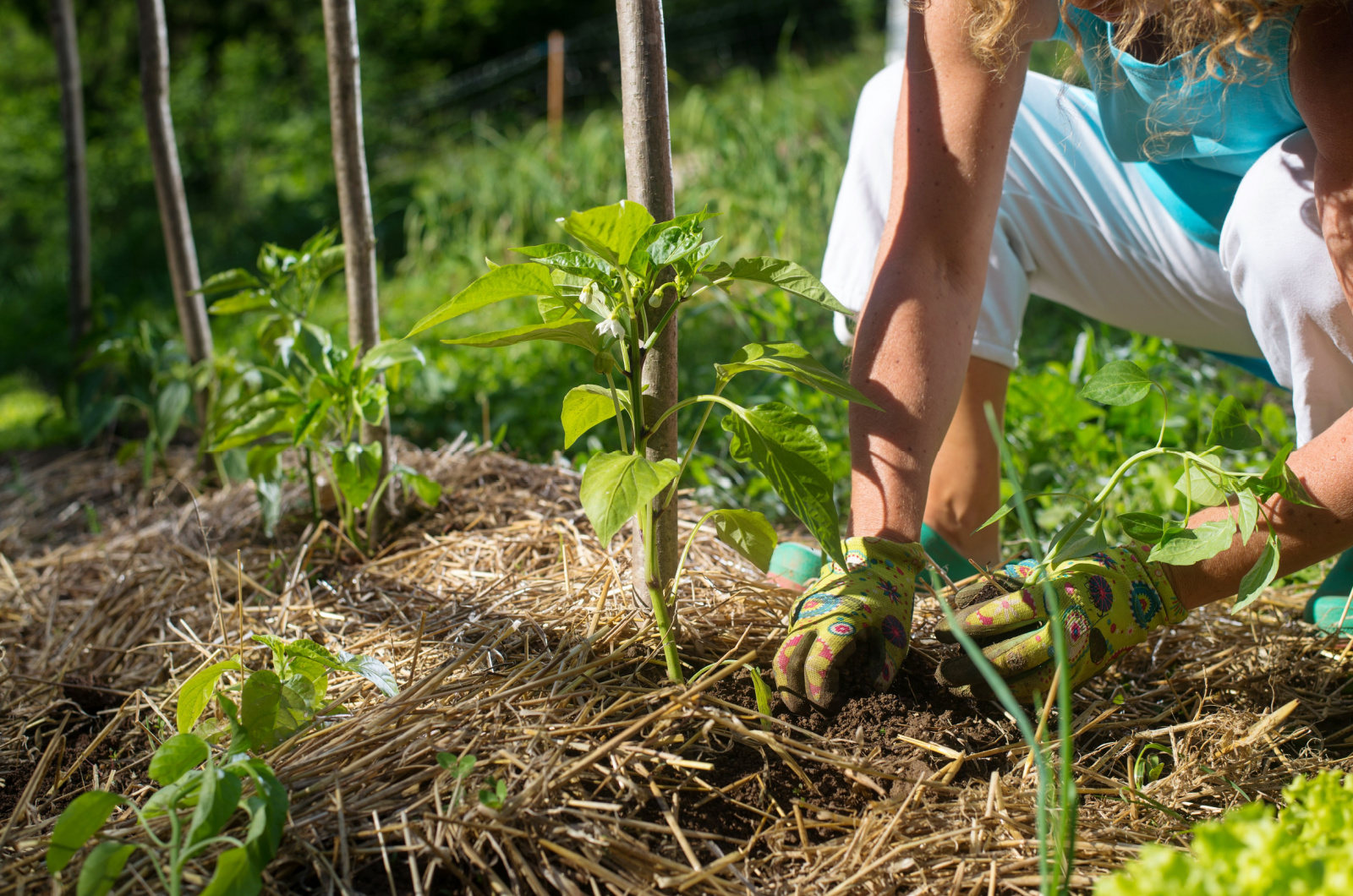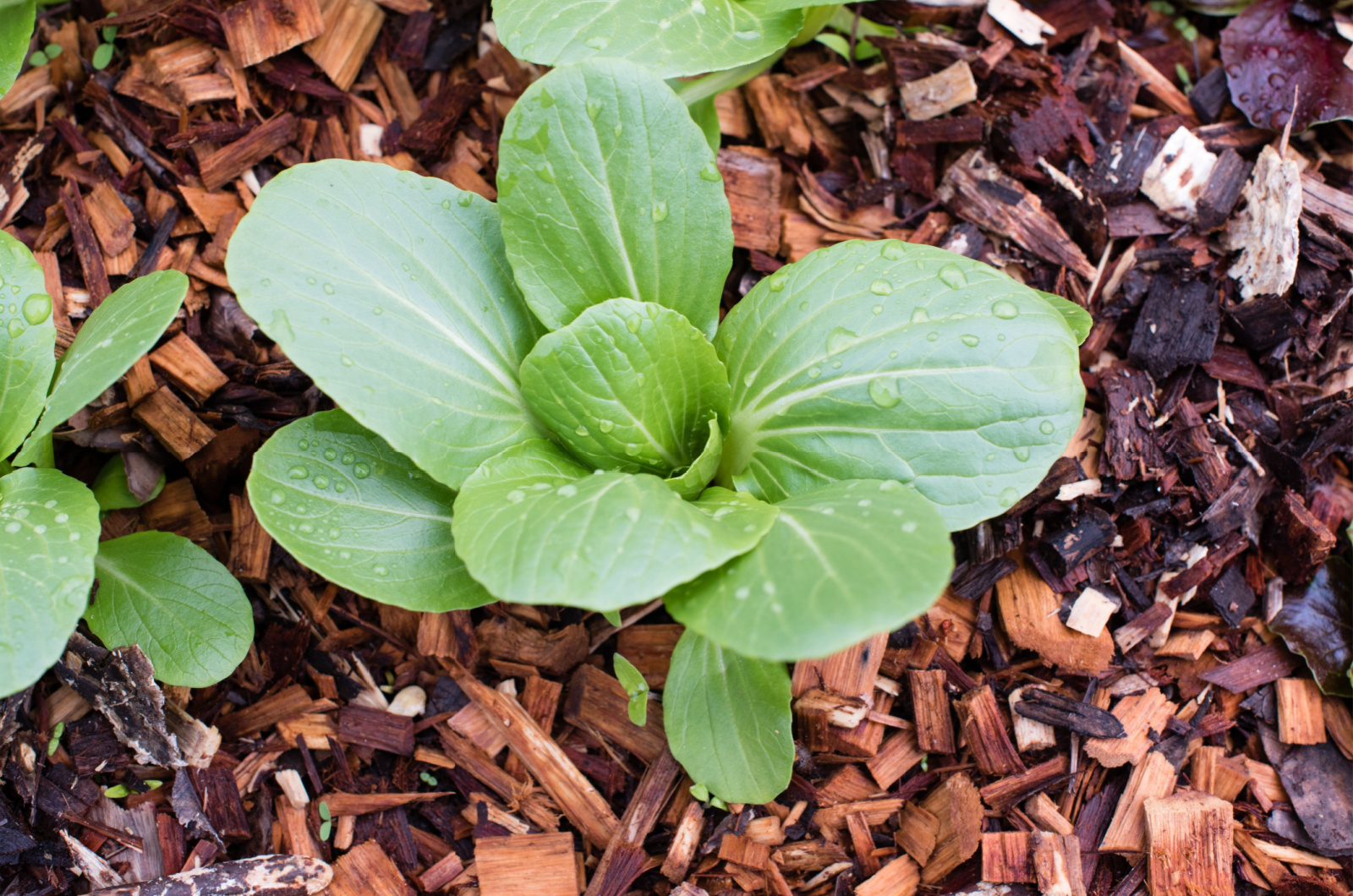There’s nothing better than a thriving veggie garden filled with delicious and healthy homegrown crops! Well, gardeners know very well how long and thorny the path to that dream is!
Since this is such a rewarding task, we’re looking for various ways to protect and avoid issues in our gardens.
One of the common methods gardeners use is mulching because of its multiple benefits. But there’s more to it than meets the eye, so in this article I’ll show you the best mulch for a vegetable garden and why and how to apply it.
Additionally, I’ll show you some alternatives and important factors to consider if you decide on this method.
Let’s get started!
Types Of Mulches
Let’s first discuss the two main types of mulches and some examples.
Organic Mulch
The term organic actually tells us a lot about this type of mulch. Basically, it’s made of natural materials that decompose over a period of time and release beneficial compounds into the soil.
Here are some examples.
• Straw: The main features of this type are a slow decomposition rate and the ability to improve moisture retention and suppress weeds.
• Leaves: You can collect leaves from various places, not only from your garden. Leaf mulch is a popular choice among gardeners because it’s lightweight and improves the soil structure.
• Grass clippings: Another great choice because they’re readily available, add nitrogen to the soil, and decompose slowly.
• Pine needles: If you need to acidify your garden soil, this is a perfect option. You can apply it in beds where you grow plants that prefer acidic soil types.
• Compost: Serves as an excellent mulch and can fertilize the soil.
• Wood chips: This type of mulch decomposes slowly but lasts long and looks amazing in gardens.
• Cardboard and newspapers: Gardeners use them to control weed growth.
Inorganic Mulch
These mulches aren’t commonly used in gardens; they’re derived from synthetic materials so they don’t decompose.
Here are the examples.
• Gravel/crushed rock: This inorganic mulch doesn’t contribute to the nutritional value of your soil but it’s used to enhance drainage.
• Plastic sheeting: The two main purposes of this material are weed suppression and increasing soil temperatures. You should choose the perforated types because they enable the water and air to reach the soil.
Benefits Of Mulching
Now that you know common types of mulches and their purposes, it’s time to see why you should add them in the first place.
• Weed Control: These are real nuisances in gardens and the biggest problem is that it’s really hard to permanently remove them.
Mulch can help you control the growth of these aggressive plants by creating a physical barrier. Sun won’t be able to reach weed seeds, which will affect the germination rate.
• Moisture retention: A thick layer of mulch does wonders for water retention in the soil. It decreases the water evaporation rate and keeps the soil consistently moist.
You won’t need to irrigate your veggies frequently and worry they’ll dehydrate.
• Soil temperature regulation: By adding a layer of mulch to the soil, you create some kind of insulation. The soil won’t warm up as fast and your plants will also be protected from low temperatures.
• Nutrient boost: Only organic mulch types can increase nutrient levels in the growing medium. They make the soil more fertile so your veggies can grow healthily and generate multiple crops.
Which Mulch To Choose
Here are some guidelines that can help you decide on the perfect mulch type for your veggie garden.
Best Organic Mulches
Many gardeners use coconut husk as mulch and the results are fantastic. This is a biodegradable fully organic material and will help you control weed growth and enhance soil moisture retention.
If you have a lawn and don’t know what to do with the grass clippings, simply apply them to your veggie garden as mulch.
Those who can get straw easily can apply it to promote soil moisture retention and control weed growth.
If using mulches that contain wood, be careful when applying them because they’re pretty heavy.
Best Inorganic Mulches
Your veggie garden may also benefit from rubber or plastic mulch. The first one is particularly effective against weeds, whereas the latter is used for soil temperature regulation and better moisture retention.
Remember that these materials don’t add any nutrients to the soil.
When choosing the perfect type of mulch, there are a few things to consider, such as price, availability, and overall appearance.
It may also depend on the type of veggies you grow and their requirements.
Tips And Tricks For Mulching
Here are some tips on using this material in your garden.
Layer Thickness
The ideal thickness of the layer is between 2-4 inches; the type of mulch actually plays a vital role.
For instance, if you’re applying materials such as compost or straw, you can go with a thicker layer. On the other hand, the layer of mulches that contain wood should be thinner.
When And How Often To Mulch
You’ll get the most out of your mulch, no matter the type, if you apply it in late spring or early summer. The soil temperatures are higher and it will improve mulch efficiency.
You can reapply it a few times during the season but make sure to remove the weeds before adding any mulch.
How To Apply And Spread Mulch
When applying this material, make sure not to place it near plant bases. Piling it up around the stems and stalks of your veggies may lead to different issues.
You can use various tools to spread your mulch; a shovel is great for compost and wood chips, while a rake is more suitable for sawdust and leaf mulch.
Alternatives For Mulching
If you want to use mulch for decorative purposes, then landscaping mulch is the best. Hardwood mulch or cocoa bean mulch are some types you can use.
The first one comes in various colors which add vibrance to gardens. The second one is aromatic and visually appealing, so it’s a win-win situation.
If you have children and you would like to add a protective coating to your soil, rubber mulch is perfect.
Gravel and pebbles can also be used as mulch for decorative purposes.
Potential Concerns
Here are the factors to consider when choosing mulch for your garden.
• Decomposition rate and maintenance: Some types decompose faster, such as straw or grass clippings, and you’ll need to reapply them more frequently.
Mulches made of pine needles or hardwood have a slower decomposition rate and they’ll last longer.
• Pest control: Some types of mulches, such as grass clippings, may attract pests such as slugs and snails. It’s essential to inspect regularly and choose a different type if this problem occurs too often.
• Safety measures for pets: If you have furry friends, avoid mulches such as cocoa bean hulls because they can harm your pets if they ingest them. Shredded bark or hardwood chips are a better choice for pet and garden owners.
Now that you know everything about mulches, select one following our guidelines and enjoy your thriving veggie garden!

